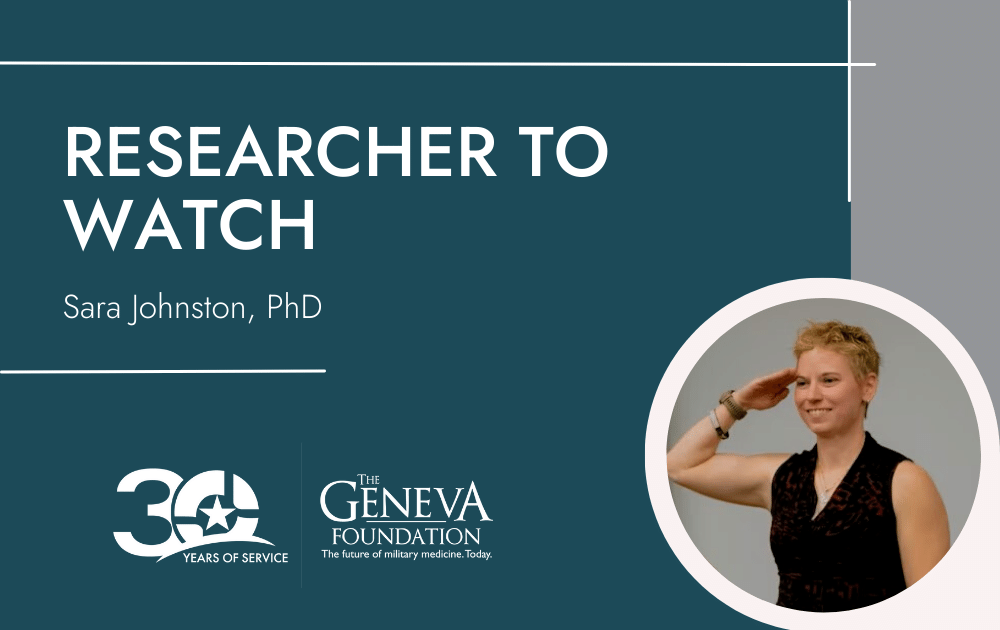29 March 2023
Developing an Antibody to Treat WHO Priority Disease Nipah Virus
Researcher to Watch: Sara Johnston, PhD
Nipah virus (NiV) is designated by the Centers for Disease Control and Prevention (CDC) and the National Institute of Allergy and Infectious Diseases (NIAID) as a Category C pathogen which includes emerging pathogens that could be engineered for mass dissemination in the future, causing major economic and human health impacts. NiV was initially identified in 1998 in Malaysia and Singapore and resulted in approximately 300 cases of brain and lung inflammation with a mortality rate of 40%. Since 1998, outbreaks of NiV have been reported in Bangladesh and India with mortality rates approaching 75%.
Sara Johnston, PhD is a Research Microbiologist and Team Lead, Project Implementation Team in the Virology Division at the U.S. Army Medical Research Institute of Infectious Diseases (USAMRIID). She started at USAMRIID 14 years ago in a postdoctoral position and has worked her way to leading large, multitiered infectious diseases studies for some of the most hazardous viruses in the world—including NiV as well as Marburg virus and Ebola virus. Dr. Johnston has over 12 years’ experience in animal model development and has led 27 BSL-3 and BSL-4 studies.
Dr. Johnston is currently the Principal Investigator (PI) at USAMRIID for a new Geneva-managed research program titled, “Prophylactic Evaluation of a Nipah Virus Monoclonal Antibody Medical Countermeasure.” This study is centered around finding a treatment for NiV by performing dose response studies of the prophylactic use of the MBP1F5 antibody in hamsters, followed by an efficacy study in African green monkeys.
“NiV has a high fatality rate and prolonged incubation period and can be transmitted between humans,” said Dr. Johnston. “These factors, plus the lack of approved countermeasures against the virus, gave the World Health Organization (WHO) the evidence it needed to determine that there was an urgent need to accelerate research efforts and add the virus to their Blueprint list of priority diseases. For these reasons, novel approaches to combating NiV are being developed that can be deployed for use in case of an outbreak.”
Geneva helped facilitate the proposal submission of this study at USAMRIID and has since provided full-service administrative support including hiring, agreement execution, and procurement management. In continuing Geneva’s goal of fostering collaborative partnerships, Geneva has also assisted Dr. Johnston in submitting a new proposal with fellow USAMRIID PI Dr. Rekha Panchal. Geneva currently manages 18 research programs at USAMRIID including other infectious diseases studies for Marburg virus, Ebola virus, Lassa fever, and COVID-19.
On 27 January 2023, Dr. Johnston fulfilled her dream and was commissioned as a captain in the U.S. Army Reserve. ““Ever since I was young, I’ve wanted to join the military, and I found another way to serve that community by coming to USAMRIID,” said Dr. Johnston. “However, there was always still that burning desire to be a part of the Army. At the age of 40, I reflected on this, and I didn’t want to have any regrets, so I reached out to an Army Medicine recruiter and decided it was time to take this step.”
This award is funded by an Other Transactional Agreement (Base Agreement No. 2018-843) between Medical CBRN Defense Consortium and MappBio under the subaward number SUB-2021-7078-0002.
Disclaimer: The views expressed do not reflect the official policy of the Army, the Department of Defense, or the U.S. Government.

“NiV has a high fatality rate and prolonged incubation period and can be transmitted between humans. These factors, plus the lack of approved countermeasures against the virus, gave the World Health Organization (WHO) the evidence it needed to determine that there was an urgent need to accelerate research efforts and add the virus to their Blueprint list of priority diseases.”
Sara Johnston, PhD
HIGHLIGHTS
- Nipah virus (NiV) is designated by the Centers for Disease Control and Prevention (CDC) and the National Institute of Allergy and Infectious Diseases (NIAID) as a Category C pathogen.
- Since 1998, outbreaks of NiV have been reported in Bangladesh and India with mortality rates approaching 75%.
- Dr. Johnston is currently the Principal Investigator (PI) at USAMRIID for a new Geneva-managed research program titled, “Prophylactic Evaluation of a Nipah Virus Monoclonal Antibody Medical Countermeasure.”


